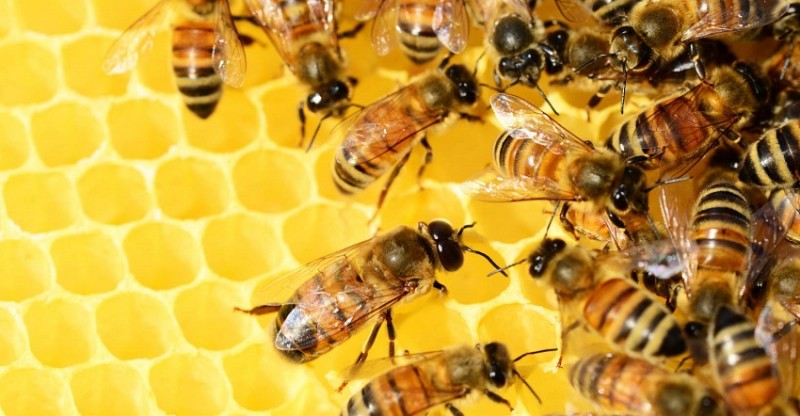
Every year on the third Saturday of August, people around the globe celebrate World Honey Bee Day—a day dedicated to raising awareness about the vital role honey bees play in our ecosystem, food supply, and even our health. On August 17, it's not just about appreciating the sweet taste of honey; it's about recognizing the significance of these buzzing insects that contribute so much to our world. But why exactly do honey bees matter so much to us?
Pollinators at the Heart of Our Food Supply
Honey bees are among the most important pollinators on the planet, playing a crucial role in the production of many of the foods we consume daily. In fact, one out of every three bites of food we eat depends on the pollination work done by bees. From fruits and vegetables like apples, almonds, and tomatoes to essential crops like coffee and cocoa, honey bees help fertilize plants, ensuring they produce seeds, fruits, and nuts.
Without honey bees, our food system would be significantly impacted, leading to shortages of many of our favorite foods and potentially driving up prices. Their role in pollination is directly linked to biodiversity, which supports healthy ecosystems and contributes to a resilient agricultural system.
Guardians of the Ecosystem
Beyond food production, honey bees are crucial to maintaining the balance of our ecosystems. By pollinating a variety of plants, they help sustain plant species that other animals depend on for food and shelter. The interdependence between bees, plants, and animals forms the foundation of ecosystems that support life on Earth.
Health Benefits of Honey
Honey bees not only contribute to the environment—they also provide us with honey, a natural and health-boosting food. Honey is known for its medicinal properties, including its ability to soothe sore throats, promote wound healing, and even boost the immune system. Rich in antioxidants, honey can help fight inflammation and improve overall health.
But honey isn't just a superfood for humans; it's a key component of the hive’s survival. Bees produce honey to feed their colony, especially during the winter months when flowers are scarce. This intricate balance of production and consumption makes honey essential for both bees and humans.
Why Honey Bee Conservation Matters
Unfortunately, honey bees are facing numerous threats. Habitat loss, pesticides, climate change, and diseases are leading to the decline of bee populations worldwide. This is why World Honey Bee Day is so important—it's a reminder that protecting honey bees means safeguarding our food security, our health, and our environment.
How You Can Help
On this World Honey Bee Day, here are a few ways you can make a difference:
World Honey Bee Day serves as a powerful reminder of how honey bees are interwoven into the fabric of our daily lives. From the food we eat to the health of our ecosystems, honey bees are essential to sustaining life on Earth. By taking steps to protect them, we are ensuring a future where biodiversity thrives, food security is strengthened, and we continue to benefit from the many gifts that honey bees provide.